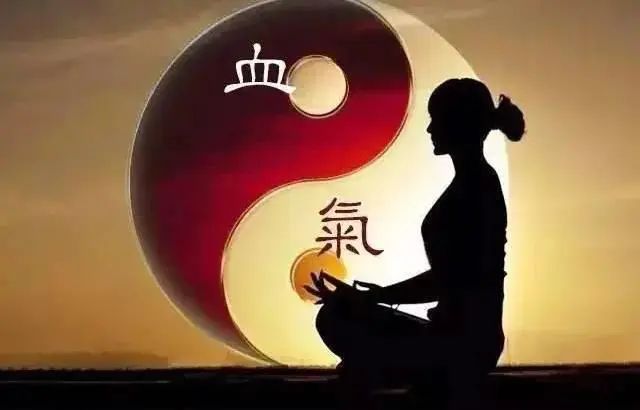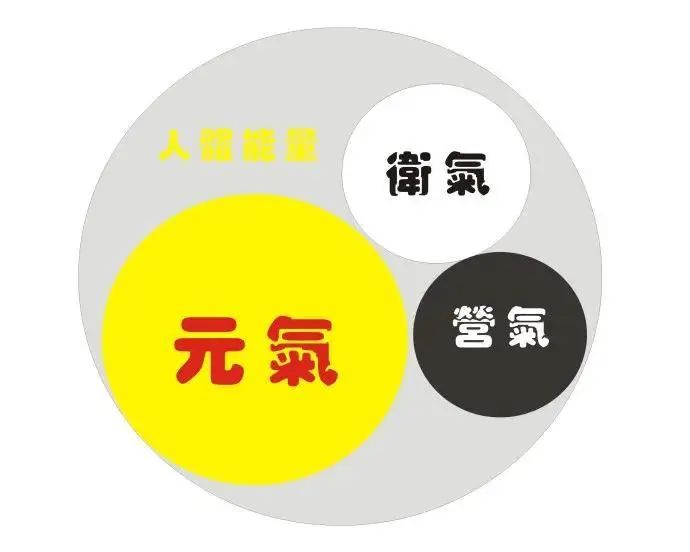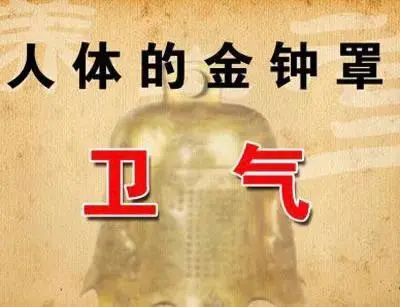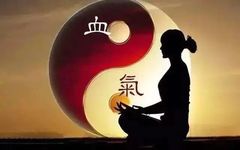In Traditional Chinese Medicine (TCM), the four major deficiency syndromes include Qi deficiency, Blood deficiency, Yin deficiency, and Yang deficiency. Among these, Qi deficiency is the most common type of deficiency syndrome. The Qi in the human body has different functions and roles, thus Qi deficiency cannot be generalized.

The Qi in the human body can be divided into four categories: Yuan Qi (元气), Ying Qi (营气), Wei Qi (卫气), and Zong Qi (宗气). These four types of Qi influence and support each other, collectively maintaining the organic integrity of the human body.

Yuan Qi (元气), also known as Original Qi or True Qi, is first mentioned in the “Nan Jing” (难经): “All twelve meridians are connected to the source of life energy. The so-called source of life energy refers to the root of the twelve meridians, which is the movement of Qi in the kidneys, the foundation of the five organs and six bowels, the root of the twelve meridians, the door of respiration, and the origin of the San Jiao (三焦).” Yuan Qi originates from the kidneys, transformed from the essence stored in the kidneys, and is nurtured by the postnatal essence of food and water. According to the “Jing Yue Quan Shu” (景岳全书), the essence in the kidneys, while based on congenital essence, also relies on the nurturing of postnatal essence from food and water. In summary, Yuan Qi is rooted in the kidneys, transformed from congenital essence, inherited from parents, and is the fundamental driving force of the human body, present from birth. It requires continuous supplementation from the postnatal Spleen and Stomach to absorb the essence of food and water. The abundance or deficiency of Yuan Qi also determines the aging process of the body. Yuan Qi, being the most fundamental substance of life activities, is the source of life activities, promoting growth and development, and stimulating the physiological functions of various organs and meridians. The stages of human life—birth, growth, maturity, aging, and death—are closely related to the abundance or deficiency of Yuan Qi. A deficiency in Yuan Qi can affect growth and development, leading to stunted growth, weakness of muscles and bones, and in adults, premature aging, hair loss, and other issues.

Zong Qi (宗气) is formed by the combination of clear Qi from the natural environment and the essence from food and water, originating in the lungs and accumulating in the chest. According to the “Ling Shu” (灵枢), Zong Qi accumulates in the chest and is distributed to the heart and lungs. It rises from the lungs, travels through the throat, and follows the respiratory pathway, dispersing in the upper Qi Sea of the chest. The term “the great Qi that does not circulate is accumulated in the chest, called the Qi Sea” refers to this. Food and drink are processed by the Spleen and Stomach, transformed into essence, which then rises with the Spleen Qi to the lungs. The lungs govern respiration, and the clear Qi inhaled combines with this essence to form Zong Qi. The main functions of Zong Qi are threefold: 1. **Respiratory Function**: Zong Qi drives the lungs in respiration, assisting in breathing; thus, the strength of speech and breath is related to Zong Qi. Insufficient Zong Qi results in weak speech, shallow breathing, and lack of strength in communication. 2. **Circulatory Function**: Zong Qi is concentrated in the heart meridian, aiding the heart in circulating blood. It helps regulate heartbeats and rhythms. Insufficient Zong Qi can hinder blood circulation, leading to stagnation. 3. **Functional Influence**: Zong Qi is essential for various bodily functions, including vision, hearing, speech, and movement. Therefore, Zong Qi plays a crucial role in all functional activities of the body.

Ying Qi (营气) is the Qi that nourishes the blood vessels, hence its name. As stated in “Du Yi Sui Bi” (读医随笔), “Ying Qi emerges from the Spleen and Stomach, moistening the muscles, bones, skin, and filling the blood vessels without moving.” Ying Qi travels within the meridians alongside blood, collectively referred to as Ying Blood (营血). Since Ying Qi flows within the meridians and accompanies blood, and blood is considered Yin, it is also referred to as Ying Yin (营阴). Ying Qi is generated from the clear Qi inhaled by the lungs and the essence absorbed from food and water by the Spleen and Stomach. Its main functions are to nourish the entire body and to generate blood. Ying Qi is primarily transformed from the essence of food and water in the Spleen and Stomach, circulating in the meridians and contributing to the composition of blood, thus exerting its nourishing effects. Insufficient Ying Qi leads to inadequate blood production, resulting in blood deficiency, which manifests as pale complexion, dizziness, insomnia with vivid dreams, pale nails, and lack of color in the lips, as well as scanty and pale menstrual flow in women.

Wei Qi (卫气) serves as the body’s protective Qi, circulating outside the meridians and belonging to Yang, also known as Wei Yang (卫阳). Wei Qi is also transformed from the clear Qi inhaled and the essence absorbed from food and water, but it is derived from the more vigorous aspects of this essence. According to the “Hygiene Treasure Mirror” (卫生宝鉴), “Yang Qi is Wei; Wei Qi is responsible for warming the flesh, filling the skin and hair, and regulating the opening and closing of pores, thus serving as a protective barrier.” Wei Qi circulates outside the meridians, functioning as the body’s defense mechanism. Its main functions are threefold: 1. **Defensive Function**: Wei Qi protects the surface of the body, defending against external pathogens. It not only prevents external invasions but also expels pathogenic Qi. Insufficient Wei Qi leads to susceptibility to colds, frequent illnesses, and slow recovery after illness. 2. **Warming Function**: Wei Qi nourishes the skin, organs, and hair, maintaining body temperature and ensuring the proper functioning of internal organs. Insufficient Wei Qi can result in sensitivity to cold and wind or fever. 3. **Regulatory Function**: Wei Qi has a consolidating effect, regulating the excretion of body fluids. Insufficient Wei Qi can lead to excessive sweating. In summary, Wei Qi has the functions of defending against external pathogens, warming the body to maintain internal temperature, and regulating the excretion of body fluids.

Therefore, Qi deficiency cannot be generalized. Insufficient Yuan Qi can be enhanced by tonifying the Spleen and Kidneys. Insufficient Zong Qi requires tonification of the Heart and Lungs. Insufficient Ying Blood and Wei Yang necessitate coordination between the Lungs and Spleen. Different types of Qi require different methods of tonification.

